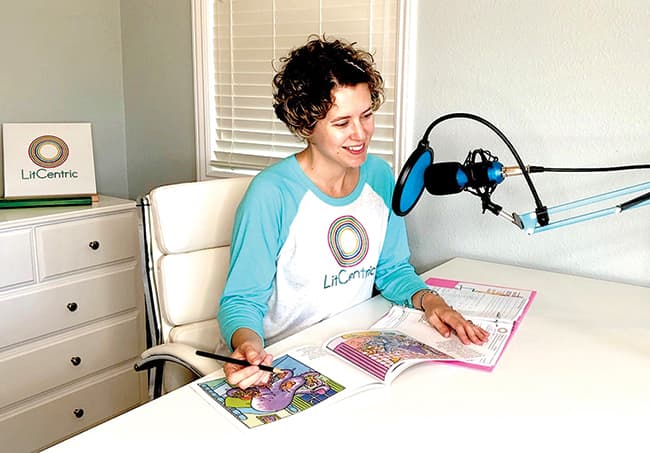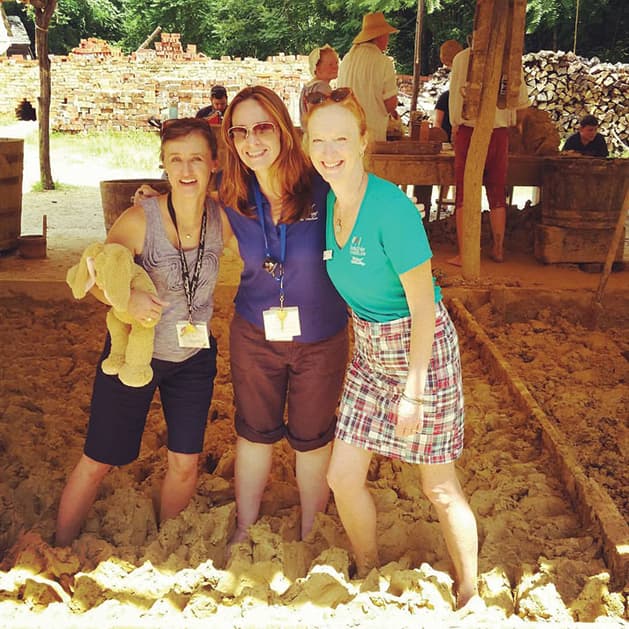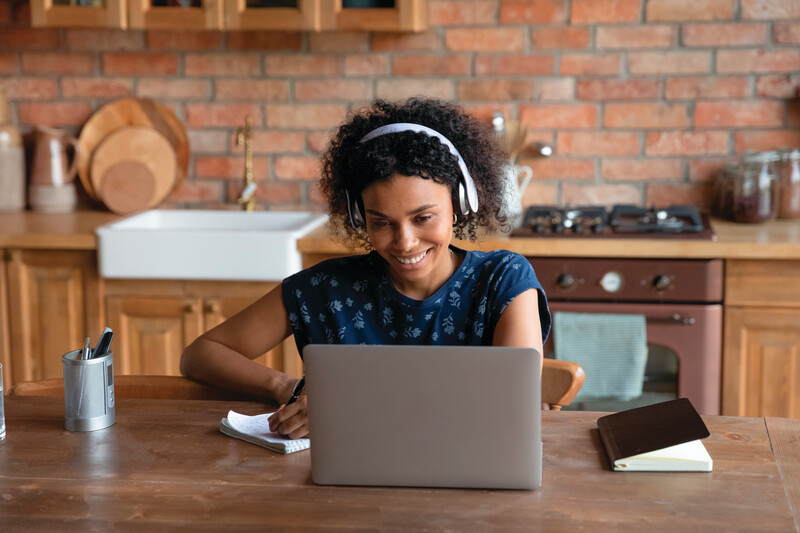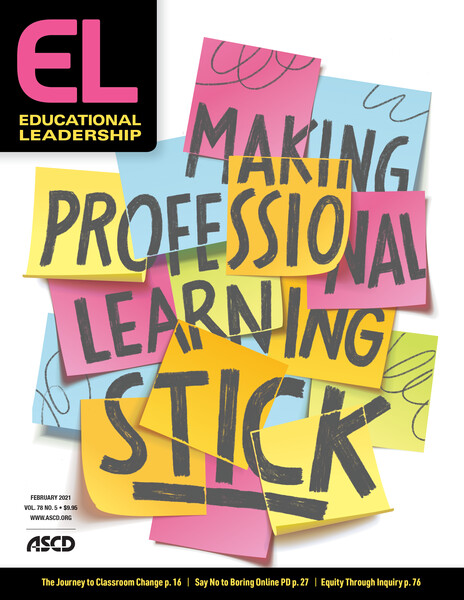What are some small, out-of-the-box ways you get helpful professional learning?
Food for Thought
I am in a leadership role and am always keen on giving opportunities to my staff to learn and grow. For this I organize lunch dates with veteran teachers and teachers new to the school or new to the curriculum program. Over lunch they build a relationship and discuss teaching strategies or classroom management tips. Once the ice is broken, they themselves reach out and continue the relationship. The more experienced teachers then invite the new teachers to their classrooms for observations. This speeds up the process of settling in and also finding mentors and friends at school.
—Rima Singh, Head of School, DPS International, Gurgaon, Haryana, India
Virtual Connections
There are three out-of-the-box ways I have gained helpful professional learning since the pandemic arrived. The first is through virtual Edcamps and Zoom sessions. Just because in-person learning is off-limits right now does not mean learning stops. The virtual Edcamps have helped me connect to other professionals while learning something about how other teachers are supporting online learning and school culture. The Zoom sessions were focused on connections and support. Second, Twitter is an amazing professional network to find support and new learning ideas and tools. Last, my school has created a gameboard for professional development, with required and optional learning opportunities staff can participate in. I am incredibly grateful to have a leadership team who listens to teachers and provides time during our days to learn with the staff. Professional learning may look different now. However, the connections and support have been amazing, and my hope is that these styles continue.
—Elyse Hahne, Social Emotional RISE (Life Skills) Teacher, Grapevine-Colleyville ISD, Grapevine, Texas
Listen Up!
Podcasts have been a great source of learning for me. In addition to education podcasts, I listen to podcasts from varied disciplines, including business, science, and government. I love podcasts so much that I was inspired to start my own. It's called LitCentric Radio, a literacy podcast for elementary teachers. The teachers I've connected with from my audience continue to teach me and inspire my work as an educator. Best of all, most podcasts are on-demand and free!

Julie Webb recording her podcast LitCentric Radio.
—Julie Webb, literacy consultant, J. Webb Consulting, Napa, California
The Best of the Best
I send a weekly email called Tuesday Talk for Teachers. Each week's email includes links to three or four curated resources (Marshall Memo style). This helps both me, as I have to read and sort professional learning articles and events, and teachers, as they put them into practice.
—Charla Greene, secondary literacy coach, Buncombe County Schools, Asheville, North Carolina
Bite-Sized PD
"MicroPD" is an idea I developed to help teachers embrace quick, actionable tools to learn and use newly presented concepts right away. It can be used at the top or bottom of any meeting, so you are not arranging a meeting that operates as a standalone and pulls staff away from their already busy schedules. MicroPD should last no longer then 10 minutes. Present a concept of interest, offer resources, follow up, and move on! Teachers can present new ideas, too.
MicroPD can also be used to address challenges faculty face, important now more than ever. Offer fun, engaging activities to motivate, keeping teachers feeling supported and encouraged.
The flexibility of MicroPD and how you adapt it to your circumstances is what makes it so effective. If it's been awhile, my faculty will ask why we haven't had one!
—Michael Gaskell, principal, East Brunswick, East Brunswick, New Jersey
Curating Online Feeds
There are so many resources for professional learning that one of my biggest challenges is focusing. Between Twitter, various professional groups on Facebook, groups on Voxer, specific Instagram accounts, and various newsletters, it can get overwhelming quickly. I have to determine what my needs are and then streamline my sources. That means unsubscribing from some newsletters, setting up columns in Tweetdeck to make sure I see the accounts or hashtags that are most impactful for me, and setting times in my calendar to look at Voxer or Facebook groups so that I can truly focus on what I read or hear. The educators out there are amazing at sharing information and resources. I have to be thoughtful about how I consume it.
—Jennifer Orr, elementary teacher, Fairfax County Public Schools, Springfield, Virginia
Want to Chat?
I host science chats, weekly informal non-threatening meet-ups for K–5 teachers. Teachers can ask specific questions about pacing, content support, instructional strategies, or best tools for a lesson. They can share their strategies with teachers from other schools throughout the district and offer suggestions to the district specialist on ways to make things work.
—Chanel Johnson, science specialist, Clayton County, Atlanta, Georgia
History in the Making
Since 2013, I have been participating in the Colonial Williamsburg Teacher Institute, first as a participant and now as a master teacher ambassador and peer facilitator. For more than 30 years, Colonial Williamsburg has been bringing about 300 teachers to the Revolutionary City in the summer, many of them on scholarship. Every year I find I learn more, not only from the wonderful staff at Colonial Williamsburg but also from the phenomenal educators I get to spend my time with there. The experience of CWTI has profoundly changed how I both view and teach history. The experience energizes me for the school year to come!

Jill Cross with educators at the Colonial Williamsburg Teacher Institute in Virginia.
—Jill Cross, Director of Curriculum & Instruction, Borblum Jewish Community School, Memphis, Tennessee
There's an App for That
Many of the resources that I use for my own and others' professional learning come from my emails. Over the last couple of years, I have subscribed to many different organizations. When I get emails from them, I check out any resources that look interesting. These could be webinars, reports, or other websites. This used to be overwhelming, but now I use Wakelet to keep track of everything. Wakelet allows me to create folders with specific titles and to add URLs, text, tweets, images, PDFs, or videos. I love the feeling that I haven't "lost" a resource because I couldn't remember from where it came.
—Toni Johnson, personalized learning coach, Penn Yan Central Schools, Penn Yan, New York
Watch and Learn
I get inspiration from watching webinars and observing other teachers. It makes me think and reimagine, reflecting on my own teaching.
—Cynthia Marquez, teacher and academic advisor, Instituto Guatemalteco Americano IGA, Guatemala
Bring in the Students
Student-led professional learning is a way to ignite, prepare, and empower tomorrow's leaders today. We held a session that was very well-received by the teachers in our district. The students shared fun and creative team building ideas, examples for using social media, methods to integrate community service, and more. They provided useful ideas, whether teaching virtual, in person, or both. As a result of rave reviews, these students were invited to present at a state Department of Education training to share their knowledge with a larger audience. Through this type of relevant professional development, students had an opportunity to challenge attendees to rethink their practices.
—Yvette Dupree, CTAE Supervisor/YAP Coordinator, Henry County Schools, McDonough, Georgia
No Cost, But High Value
Anything free I can do after school or on the weekends helps. Anything that has hands-on activities or new apps that help to engage students. Any new ideas for teaching remotely helps tremendously. It has to be free though.
—Tracy, teacher, Taos Municipal Schools, Taos, New Mexico







